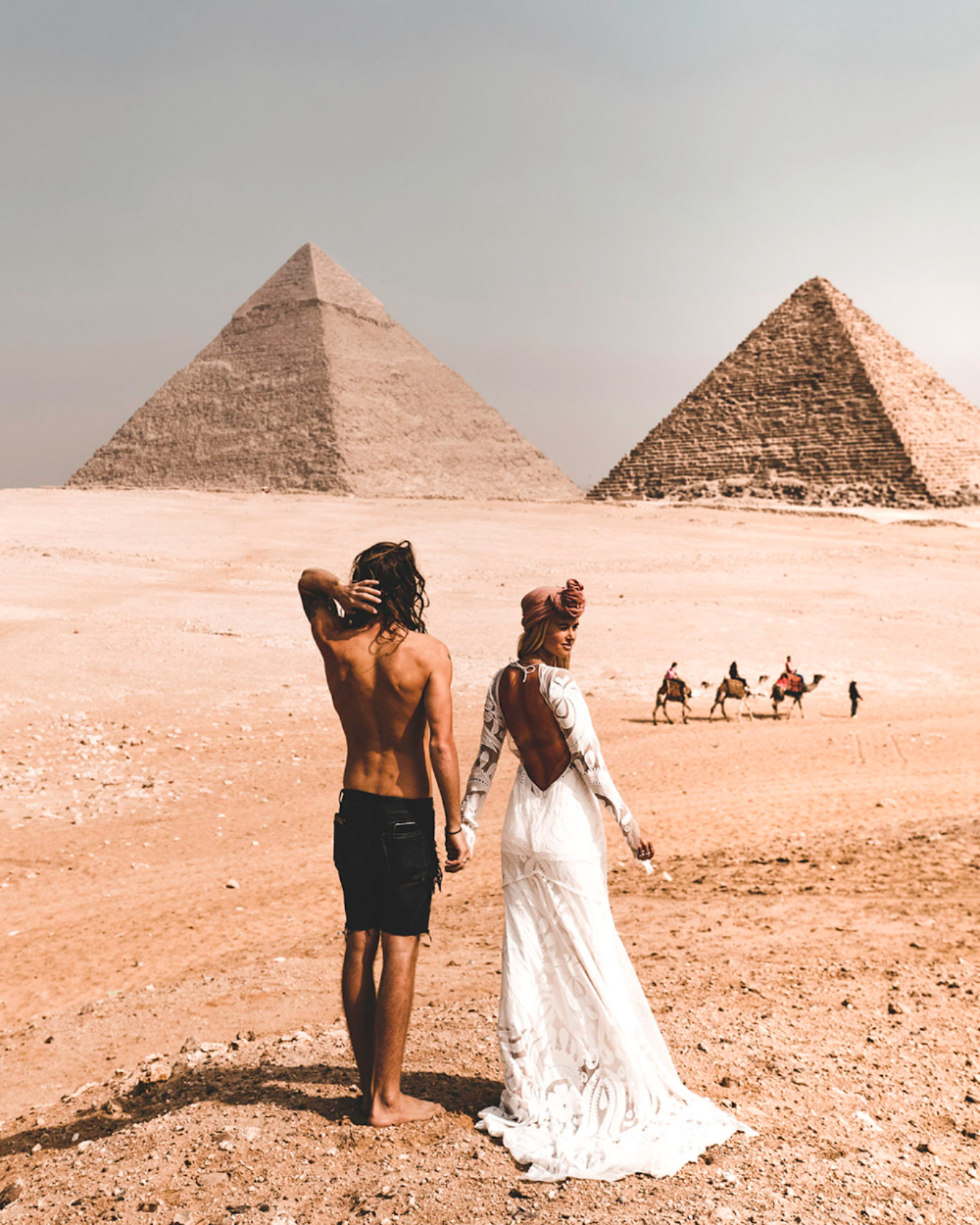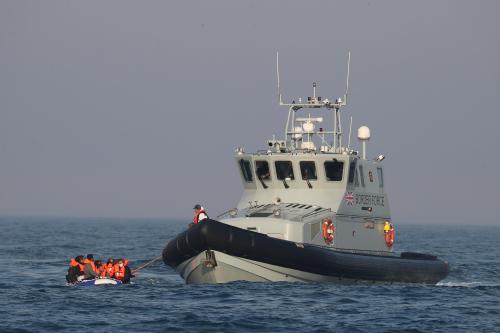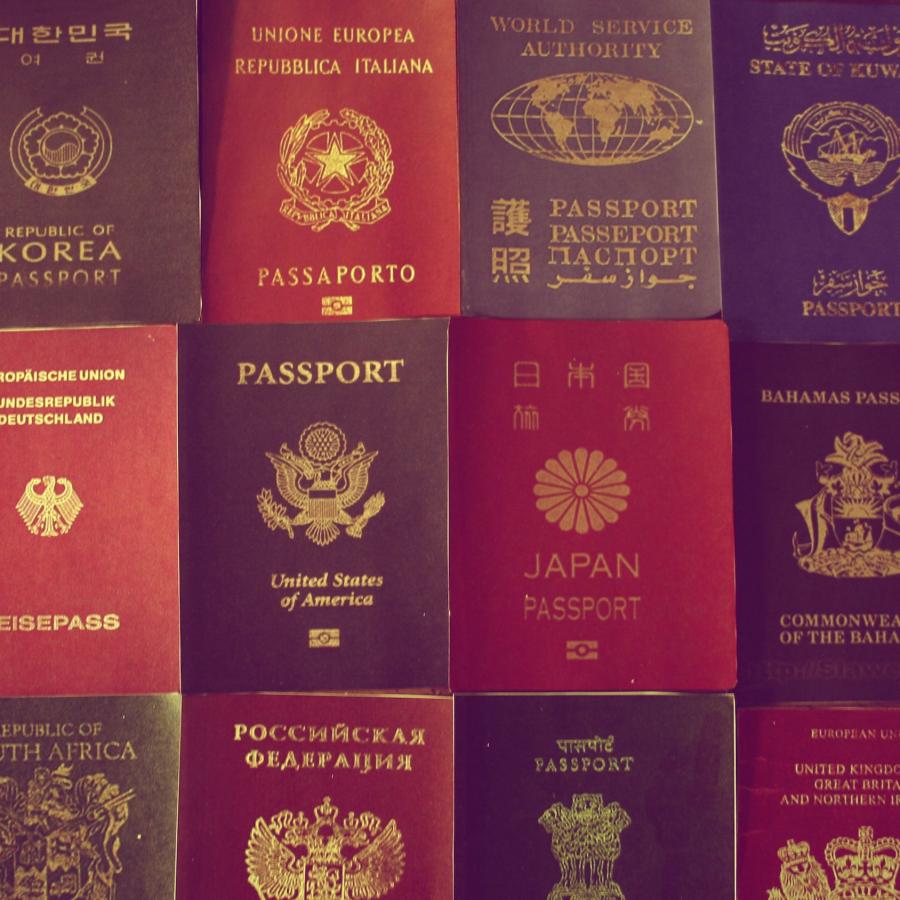Week 20. A Global Genre? Travel and Travel Writing Today
In 2018, 1.4 billion international tourist trips were recorded worldwide, with travellers from China, Germany, the US and UK leading the fray. A statistic reflecting a privileged form of mobility, it does not include the travels of groups such as forcibly displaced people. In 2019, their number totalled almost 80 million - the largest groups originating from Syria, Venezuela, Afghanistan, and South Sudan. These two contrasting categories highlight the parameters of the current global mobility regime, shaped by visa requirements, border controls, and economic inequalities. On the one hand, our age is characterised by the democratisation of travel and its recording, with Instagram representing the new frontier of documenting one's journey. On the other hand, the seeming ease and inclusivity of such mobility is a product of, and tends to mask, privilege rooted in past and contemporary politics. This seminar asks to what extent travel and travel writing today reinforces existing inequalities, and whether the democratisation of the genre is capable of subverting its colonial origins.
Required Reading
Debbie Lisle, The Global Politics of Contemporary Travel Writing (Cambridge: Cambridge University Press, 2006), ‘Introduction: the global imaginary of contemporary travel writing’, pp. 1-26.
Primary sources
Nanjala Nyabola, Travelling While Black: Essays Inspired by a Life on the Move (London: Hurst Publishers, 2020), Ch. 5: 'The Sea that Eats Our Children', pp. 61-85. LinkLink opens in a new window.
Optional: Read a contemporary travel account or watch a travel documentary of choice. Examples include the books by Bryson, Dalrymple, Ghosh, Griffiths, Phillips, and Theroux listed below or documentaries on BBC iPlayerLink opens in a new window.
Seminar Questions
- How are ‘colonial’ and ‘cosmopolitan’ visions manifested in contemporary travel writing? Is the ‘cosmopolitan vision’ Lisle discusses ‘merely a blander mutation of the colonial vision’ (p. 5)?
- To what extent do all travel writers, regardless of the differences between them, maintain the genre's discriminations and exclusions?
-
How does Nyabola reckon with the power asymmetries enshrined in travel writing? In what ways does she position herself inside and outside the genre’s tradition?
- Is Lisle’s analysis suited to the travel account/documentary you examined? Why/why not?
- How do your own experiences of mobility fit within the frameworks of travel discussed in this week’s readings? Which observations or critiques resonated with you and why?
Further Reading
Beilein, Julia, and Barbara Schaff, 'Intertextual Travel Writing', in: Barbara Schaff (ed.), Handbook of British Travel Writing (Berlin and Boston: De Gruyter, 2020), pp. 113-124. LinkLink opens in a new window.
Bell, Bill, 'The Market for Travel Writing', in: Barbara Schaff (ed.), Handbook of British Travel Writing (Berlin and Boston: De Gruyter, 2020), pp. 125-142. LinkLink opens in a new window.
Bhattacharji, Shobhana, 'Amitav Ghosh's Travel Writing: "In an Antique Land, Dancing in Cambodia" and "The Imam and the Indian"', Indian Literature 47.6 (2003), pp. 197-213. LinkLink opens in a new window.
Bryson, Bill, Notes From a Small Island (London: Black Swan, 1998). LibraryLink opens in a new window.
Chio, Jenny, et al., 'Discussion: Tourism and Race', Journal of Tourism History 12.2 (2020), pp. 173-197. LinkLink opens in a new window.
Clarke, Robert, 'Toward a Genealogy of Postcolonial Travel Writing: An Introduction', in: Robert Clarke (ed.), The Cambridge Companion to Postcolonial Travel Writing (Cambridge: Cambridge University Press, 2018), pp. 1-15. LinkLink opens in a new window.
Dalrymple, William, From the Holy Mountain: A Journey in the Shadow of Byzantium (London: Flamingo, 1998). LibraryLink opens in a new window.
Edwards, Justin D., and Rune Graulund (eds.), Mobility at Large: Globalization, Textuality and Innovative Travel Writing (Liverpool: Liverpool University Press, 2007), 'Introduction: Travel Revisited'. LinkLink opens in a new window.
Elze, Jens, 'William Dalrymple, Selected Works (1989-1997)', in: Barbara Schaff (ed.), Handbook of British Travel Writing (Berlin and Boston: De Gruyter, 2020), pp. 535-554. LinkLink opens in a new window.
Ghosh, Amitav, In an Antique Land (London: Granta Book, 1994). LibraryLink opens in a new window.
Griffiths, Jay, Wild: An Elemental Journey (London: Penguin, 2008). LibraryLink opens in a new window.
Hannigan, Tim, 'Robert Macfarlane, The Wild Places (2007)', in: Barbara Schaff (ed.), Handbook of British Travel Writing (Berlin and Boston: De Gruyter, 2020), pp. 575-594. LinkLink opens in a new window.
Holland, Patrick, and Graham Huggan, Tourists with Typewriters: Critical Reflections on Contemporary Travel Writing (Ann Arbor: University of Michigan Press, 1998). LibraryLink opens in a new window.
Jones, Lynne, The Migrant Diaries (New York: Refuge Press, 2020). LinkLink opens in a new window.
Lisle, Debbie, The Global Politics of Contemporary Travel Writing (Cambridge: Cambridge University Press, 2006), Ch. 6: 'Engaging the political: contemporary travel writing and the ethics of difference', pp. 260-278. LinkLink opens in a new window.
Mahn, Churneet, 'Queering Postcolonial Travel Writing', Studies in Travel Writing 24.2 (2020), pp. 170-182. LinkLink opens in a new window.
Mee, Catherine, Interpersonal Encounters in Contemporary Travel Writing: French and Italian Perspectives (London: Anthem Press, 2014). LinkLink opens in a new window.
Mongia, Padmini, ‘Mediaeval Travel in Postcolonial Times: Amitav Ghosh's In an Antique Land’, in: Glenn Hooper and Tim Youngs (eds.), Perspectives on Travel Writing (Aldershot: Ashgate, 2004), pp. 153-166.
Phillips, Caryl, The European Tribe (London: Faber, 1987). LibraryLink opens in a new window.
Sheemak, April, 'Refugee and Asylum Seeker Narratives as Postcolonial Travel Writing', in: Robert Clarke (ed.), The Cambridge Companion to Postcolonial Travel Writing (Cambridge: Cambridge University Press, 2018), pp. 188-201. LinkLink opens in a new window.
Singh, Tej Vir (ed.), Critical Debates in Tourism (Bristol: Channel View Publications, 2012). LinkLink opens in a new window.
Theroux, Paul, Dark Star Safari: Overland From Cairo to Cape (London: Penguin, 2003). LibraryLink opens in a new window.
Thompson, Carl (ed.), The Routledge Companion to Travel Writing (London: Routledge, 2016). LinkLink opens in a new window.
Woolley, Agnes, Contemporary Asylum Narratives: Representing Refugees in the Twenty- First Century (Houndmills and New York: Palgrave MacMillan, 2014). LinkLink opens in a new window.



